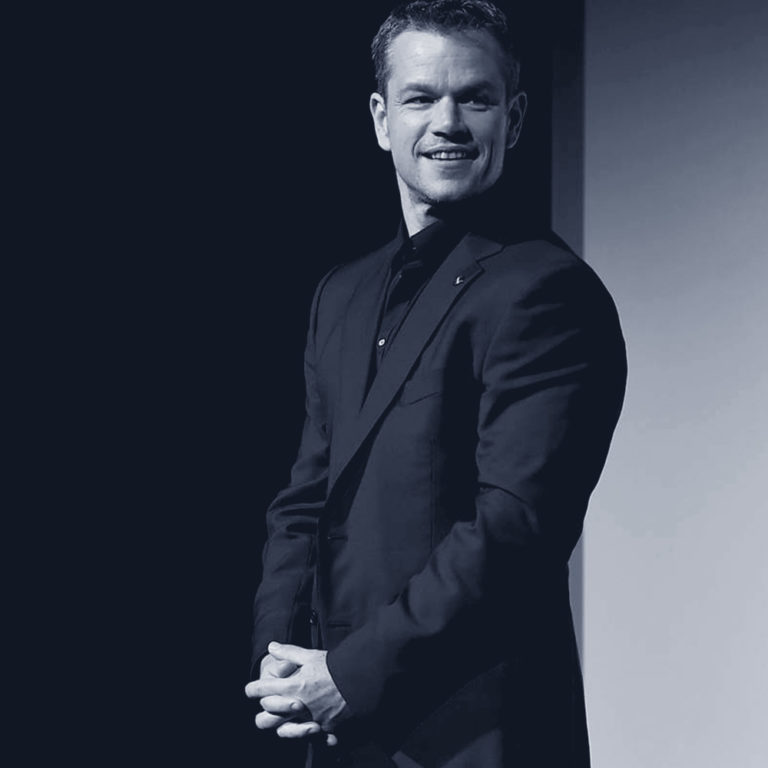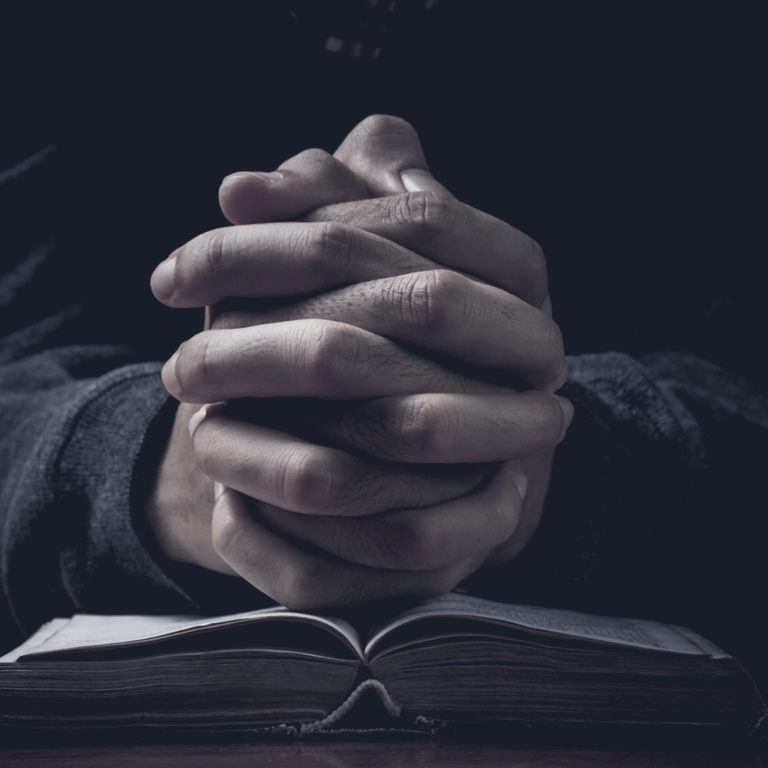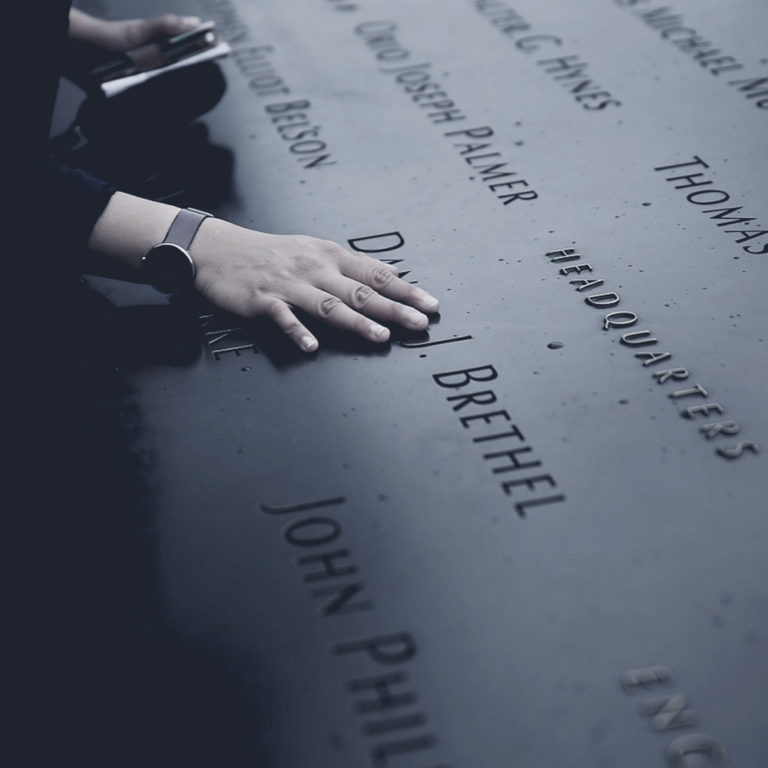Who’s Your Authority?
I have four kids. This probably doesn’t happen with most children, but sometimes my kids disagree, and argue, and fight. Oftentimes, when a dispute arises, they look outside of themselves for another voice to settle matters. Mine.
Notice, they don’t appeal to our neighbor: “Mr. Jones said….” They don’t appeal to the president of the United States: “President Obama said….” They need the appropriate authority in family matters. Me. That’s why they utter two words that carry authority in these parts: “Dad said….” If I issue a decision or take a side, that’s all my kids need to feel they are in the right.
In the same way, disagreements arise amongst religions. A Hindu may offer his religious view as the correct picture of reality while a Muslim would disagree and commend his view as the accurate one. A Mormon proclaims one Jesus while the Christian offers a different Jesus. The world’s religions do not merely offer different views of the same God, they offer different gods altogether.
Furthermore, most believers appeal to religious experience as justification for and confirmation of their religious beliefs. But this, too, is a problem because such testimony is offered as support for competing views of gods. Thus a personal experience alone is not enough to substantiate one’s views on God.
So what’s a religious seeker to do? Is there any hope in sorting out the various views? Is there any basis by which to judge between contradictory beliefs about God? Yes…if there’s an appropriate authority on the matter. An authoritative voice can offer an objective standard by which we assess conflicting beliefs. Of course, in all things religious, that authority would be God Himself. If God has told us about Himself, then we can appeal to His self-revelation and legitimately declare, “God said….” But has God spoken?
Classically, Christians have defended their view of God not with mere appeals to subjective experience but from what they take to be God’s voice recorded in the Bible. Do Christians have good reason to think God has spoken through the Bible? Yes. Not only do we have overwhelming evidence the Bible has been reliably passed down for almost 2,000 years, but there is good reason to think it is covered with divine fingerprints.
What We Have Is What Was Written
Remember the “Telephone” game? One child would start by whispering a message in another’s ear, she would then whisper to the next child, and so on. Finally, the last person in the telephone line would reveal a message so distorted from the original, the children would break out in laughter. Skeptics use this child’s game as a parallel to how the Bible has come down to us. Just like the final message of the telephone game, the New Testament is equally unreliable. Right? Wrong.
At first glance, the objection is compelling. But most people raising it simply don’t know the facts. And the facts are on the Bible’s side. Clearly, the telephone game does not accurately capture the manner in which the New Testament was passed down.
First, the New Testament message was not transmitted orally, a mode of communication that is easier to distort. Instead, it was handed down in writing. Second, there was not a singular line of transmission—that is, it was not the case that a single individual passed the message to another individual who passed the message to a different individual and so on. Rather, there were many lines as one letter was copied multiple times and copies were copied multiple times, eventually resulting in a host of manuscript copies. Third, historians do not rely on the last person in line but look for earlier sources much closer to the original. Finally, original letters could be consulted, even after several generations of copies.
A quick look at the transmission of not only the New Testament but of all ancient documents reveals the misconceptions in the telephone game analogy. As ancient documents are passed along in this manner, historians ask two primary questions to determine a text’s reliability:
How many manuscript copies do we have?
How close in time are the manuscript copies to the original?
Answering these two questions for the New Testament demonstrates it is the most reliable ancient document, hands down.
What We Read Is What God Said
Fingerprints are one of the best forms of evidence. If a detective finds fingerprints at a crime scene, he has a vital clue to help identify the perpetrator. When it comes to the Bible, we also have a mystery to solve: Who is the author? I’m not talking about the human authors. We want to know if there’s an Author behind those authors, if the Bible is indeed the “Word of God” as Christians claim. And when we look carefully, we discover divine fingerprints all over this unique book.
First, the Bible contains fulfilled prophecies. Specific events are foretold with great detail many years, sometimes centuries, before they occur. There are approximately 2,500 prophecies in the Bible, about 2,000 that have been fulfilled. For example, in Micah 5:2, the prophet identifies the city of Bethlehem as the Messiah’s birthplace approximately 700 years before the event. The prophet Zechariah predicted Jesus would be betrayed for 30 pieces of silver (Zechariah 11:12-13). What is the best explanation for such supernatural predictions? A supernatural “Predictor.”
A second divine fingerprint is the Bible’s unity despite its radically diverse origins. There were 40 diverse authors with diverse backgrounds. There were diverse writing conditions, from palaces to the wilderness. There were diverse genres of writing, from poetry to history. There were diverse topics, often controversial topics. And it’s all written over 1,500 years. However, there is profound unity, as God’s story unfolds from Genesis to Revelation. There is unbelievable factual and theological agreement throughout the Bible. Again, what best explains this? A single Divine Author, working through human authors.
Third, the Bible has had a supernatural impact on individual lives, as well as on the world. There have been countless individuals transformed by the Bible and that impact transcends all economic, ethnic and geographical boundaries. The Bible’s influence can be seen throughout the ages in the arts, in literature, in education, in law, in science, in medicine, and on and on. Only a supernatural book with a supernatural author could bring about such supernatural impact on individuals and the world.
Indeed, the Bible is no ordinary book. It contains the very words of God. And now that you’ve seen evidence of its divine origins, you’re confronted with another question: What are you going to do with this book? Click on the banner below.
Source: str.org [edited]










